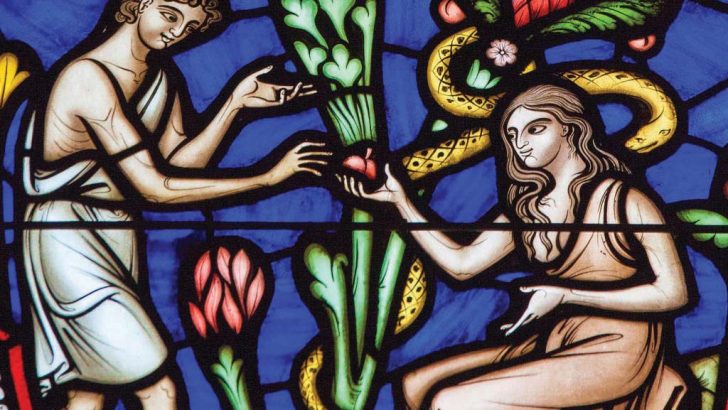“After the man, Adam, had eaten of the tree, the Lord God called to the man and asked him, ‘Where are you?’ He answered, ‘I heard you in the garden; but I was afraid, because I was naked, so I hid myself.’ Then he asked, ‘Who told you that you were naked?’” (Gn 3:8-11)
In these early days of Advent, when we are immersing ourselves in biblical narratives, we can easily forget that nothing we read in Scripture is there by accident – that even a seemingly inconsequential detail (like the fact that the Prodigal Son was still “a long way off” when the Father ran out to meet him) is an invitation to ponder God’s greatness, as well as his strange humility.
Grace
What kind of God runs out to meet the trudging, imperfectly penitent prodigal? What sort of Maker, choosing to Incarnate, first seeks out the consent of the creature whose grace and flesh he requires? A humble one.
What sort of Creator (who, being omnipresent, never needs to ask us a thing) nevertheless inquires of the man, Adam, “Who told you that you were naked?”
“Who told you that you were naked,” is not a trick or a test. As with all of God’s questions, it is a summons for his creatures to behold, consider and better understand ourselves and why we do the stupid things we do.
Animals do not perceive nakedness; they don’t feel afraid and hide because of it. But, whether through evolution or fruit, suddenly Adam and Eve were feeling vulnerable, and scared. They were hiding, but why?
Perhaps what really frightened them was their first, very shallow experience of self-awareness, the understanding that they possessed not only instinct but reason and free will. Now they were answerable, and to someone beyond themselves, for their action.
Trust
I wonder if Adam and Eve lost Eden not because they disobeyed but because afterward they hid themselves. Unable to believe that they could trust God in their new understanding of vulnerability, they went into the shadows and wilfully separated themselves from God’s company.
Perhaps the inability to seek out and trust in God’s merciful goodness when we feel vulnerable is the true taint and effect of Original Sin: God has been trying to get us to trust Him, to reveal ourselves to Him ever since.
In Advent, as we plead for Emmanuel to come to us, I like to remember the plea God makes to us – to return to him, like the Prodigal. To consent to him, like Mary. To be aware and thus vulnerable: “Ephphatha! Be opened.”
Elizabeth Scalia is editor at large for OSV.


 Adam and Eve
Adam and Eve 